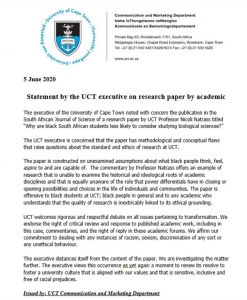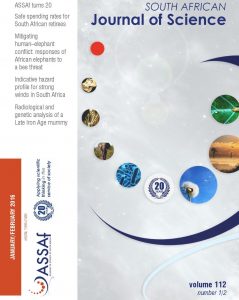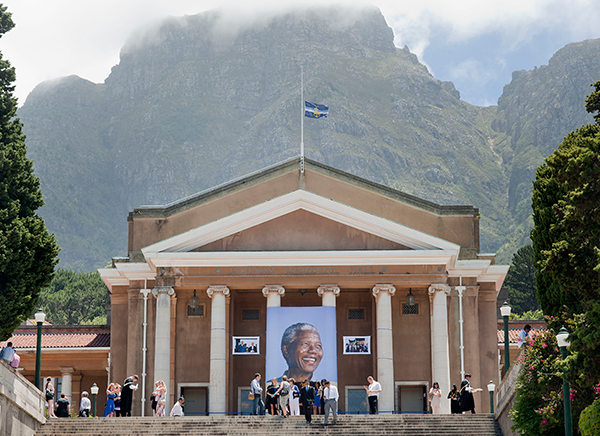A research report that claims that Blacks do not study biological sciences because they are contextually ill-equipped for that is steering its own race related ripples but this time not in the United States. Rather, it is happening at the University of Cape Town (UCT) in the Republic of South Africa, the space of Apartheid before its dismantling in 1994.
It is nothing in the magnitude of the revolt in the US but the UCT is buzzing right now over the paper “Why are black South African students less likely to consider studying biological sciences?” by Prof Nicoli Natrass in the May/June 2020 edition, (Vol. 116, No. 5/6) of the South African Journal of Science.

 In a tackle reminiscent of the one that followed Dr. Bruce Gilley’s journal essay “The Case for Colonialism” in 2017, Black academics and the executive of the university have strongly challenged her in a way that tracks back to the unique colonial experience that underpins the South African State.
In a tackle reminiscent of the one that followed Dr. Bruce Gilley’s journal essay “The Case for Colonialism” in 2017, Black academics and the executive of the university have strongly challenged her in a way that tracks back to the unique colonial experience that underpins the South African State.
UCT executive has already issued a statement distancing itself on grounds of methodological and conceptual flaws, asserting that The commentary by Prof Natrass offers an example of research that is unable to examine the historical and ideological roots of academic disciplines and that is equally unaware of the role that power differentials have in closing or opening possibilities and choices in the life of individuals and communities”.
It is also arguing that the paper has been “constructed on unexamined assumptions about what black people feel, aspire to and are capable of” and it is, therefore, investigating the matter even as it makes clear its commitment to the critical tradition
On its part, the Black Academic Caucus at UCT which has also issued a statement denouncing the research report is not only outraged, it is also bringing in the power/knowledge nexus. The caucus says the research by Prof Nattrass presses on the ways in which scientific research is implicated in the worst excesses of colonialism.
It refers to a similar essay in 2019 by academics at the University of Stellenbosch also in South Africa titled “Age-and education-related effects on cognitive functioning in Coloured South African women”. Although this was later withdrawn, that came after what the Black Caucus calls wide condemnation for its racist undertones.
“In Nattrass’ two-page article, a variety of tropes about black students and black people and their ‘culture’ play out, leading to some disturbing conclusions from the author”, said the Caucus in the statement.
A key disagreement of the Caucus with Natrass’s paper goes as follows: The author hypothesises further that the low enrolment of students in the biological sciences might be because of (i) The materialist values of black students (ii) lack of pet ownership (iii) attitudes toward wildlife (iv) ‘fallism’ and anti-colonialism (the inverted commas around ‘fallism’ in the article appear to trivialise students who were part of the Rhodes Must Fall and Fees Must Fall movements) (v) and black students’ perceived tradeoffs between social justice and conservation. If you are wondering if this is a joke, then you are not alone. These musings are bundled by the author into a metric intended to answer the question ‘had students (black) ever considered studying zoology or the biological sciences?’. What is remarkable is that the starting point of this research is a general hypothesis that black students are indisposed to studying the biological sciences because of their materialism and culture (these claims are unsubstantiated)”

Nicoli Natrass, the Oxford educated Professor of Economics

The late Prof Samuel Huntington
The flaks are not coming from black intellectuals and academics in South African alone. Others are joining. One case of a pot shot that must be allowed in his own words runs thus: Her questions are so loaded. A black person could want to close all national parks because of historical hatred for white appropriation of black land and continued white ownership of national parks. If blacks own those parks, the answers might be different. The dichotomy she develops between materiality and conservation is spurious. All humans are concerned about materiality or survival. And there are countless studies of poor people who have successfully used local level conservation methods in societies where they own their land. In other words, concerns for materiality are not antithetical to conservation even in poor communities”.
The argument continues: “It’s an insult to blame black people for being materialistic and anti-environment when they don’t have control of their environment. How can they conserve what they don’t own? Has Nattrass thought about the need to give black people the best land in South Africa, including the national parks she seems to be obsessed about, and see whether they will be against conservation?”
In all cases, the research is considered to have drawn inferences that are not just clearly superficial and racist but even posed “all the wrong questions”.
Since innocence is ruled out in all scholarship, it becomes even more confusing what some academics hope to prove by dabbling into the framing of certain issues in racial terms or in terms that can easily be read as racial and racist. Unfortunately, the trend has been growing.
Before the 2017 controversy over Bruce Gilley’s “The Case for Colonialism”, Samuel Huntington not only published his The Clash of Civilizations and the Remaking of World Order, he went on to publish his even more controversial Who Are We?: The Challenges to America’s National Identity. Claiming that America has a core in identity terms is what can be reasonably argued to have provided the epistemological enforcement for the resurgence of current phase of racial implosion in the country.
South Africa remains an understandably race-sensitive society. Although the #RhodesMustFall campaign has spread as far as even Oxford University and other similar spaces in Europe, South Africa is still where it has had a most symbolic demonstration effect.
Against this background, this might be the controversy to watch about but beyond South Africa.




























